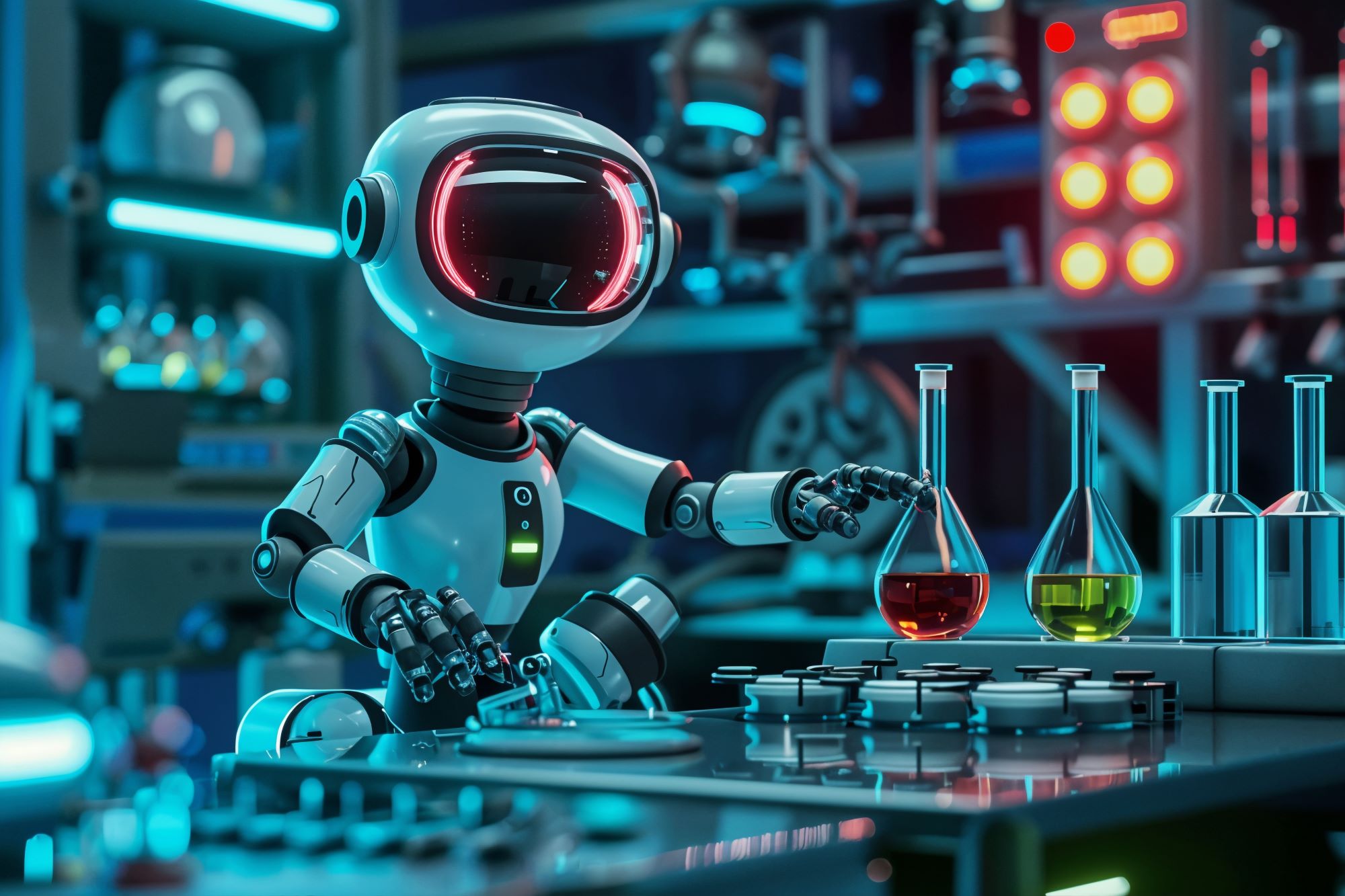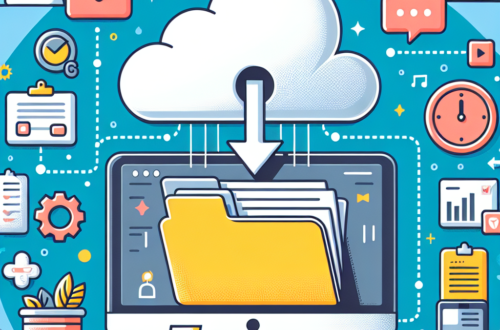
How AI and ML Are Revolutionizing Drug Discovery
The world of drug discovery is undergoing a remarkable transformation. Thanks to the advancements in artificial intelligence (AI) and machine learning (ML), the traditional methods used in discovering new drugs are being reimagined. This shift is not only making the process faster and more cost-effective but also more accurate and innovative. In this comprehensive guide, we’ll delve into how AI and ML are changing the landscape of drug discovery and explore the various facets of this exciting development.
Introduction to Drug Discovery
Drug discovery is the foundational process in developing new medications. Traditionally, this involves several stages:
- Target Identification: Determining the biological molecule that a drug will interact with.
- Hit Discovery: Screening compounds to identify those that have the desired effect on the target.
- Lead Optimization: Refining compounds to improve their effectiveness and reduce side effects.
- Preclinical Testing: Evaluating the drug’s safety and efficacy in non-human models.
- Clinical Trials: Testing the drug in humans through various phases to ensure its safety and effectiveness.
This process is notoriously lengthy and expensive, often taking over a decade and costing billions of dollars. However, AI and ML are streamlining these stages, offering promising solutions to age-old challenges.
The Role of AI and ML in Drug Discovery
AI and ML technologies are redefining drug discovery by offering new ways to handle data, recognize patterns, and make predictions. Here’s a closer look at their roles:
Data Handling
AI algorithms excel at managing and analyzing large datasets, far beyond the capabilities of traditional methods. For example:
- Integration of Diverse Data Sources: AI can combine data from genomics, proteomics, and clinical studies, providing a comprehensive view.
- Real-Time Data Analysis: AI systems can process and analyze data in real-time, offering immediate insights.
Pattern Recognition
Machine learning models are adept at identifying complex patterns in data. This is crucial for:
- Uncovering Hidden Relationships: ML algorithms can reveal connections between different biological factors that may not be immediately obvious.
- Predicting Drug Interactions: By recognizing patterns in chemical structures and biological responses, ML models can predict how different drugs will interact.
Predictive Analytics
Predictive analytics powered by AI helps forecast outcomes based on historical data. This includes:
- Drug Efficacy Predictions: AI can predict how well a drug will work based on similar compounds and previous studies.
- Side Effect Prediction: ML models can assess the likelihood of adverse effects before clinical trials begin.
Key Benefits of AI and ML in Drug Discovery
The integration of AI and ML into drug discovery offers several significant advantages. Below is a detailed table summarizing these benefits:
| Benefit | Description |
| Speed | AI accelerates various stages of drug discovery. |
| Faster Data Processing | AI systems can quickly analyze vast amounts of data, speeding up the discovery process. |
| Rapid Screening | High-throughput screening powered by AI can test thousands of compounds in a fraction of the time. |
| Cost Efficiency | AI helps reduce costs associated with drug discovery. |
| Reduced Laboratory Work | Automation and predictive modeling reduce the need for extensive lab experiments. |
| Lower Failure Rates | By predicting drug efficacy and safety, AI helps lower the number of failed drug candidates. |
| Precision | Machine learning improves the accuracy of drug discovery. |
| Target Identification | AI algorithms can more accurately identify potential drug targets. |
| Customized Drug Design | ML models can design drugs with specific properties to enhance their effectiveness. |
| Innovation | AI drives innovation in drug discovery. |
| New Drug Candidates | AI can identify novel compounds that might not be discovered through traditional methods. |
| Advanced Therapeutics | AI enables the development of more sophisticated and personalized therapies. |
These benefits highlight how AI and ML are not just enhancing but revolutionizing the drug discovery process, making it faster, more cost-effective, precise, and innovative.
AI and ML in Target Identification
Target identification is a critical first step in drug discovery. AI and ML enhance this process in several impactful ways.
Analyzing Genetic Data
AI can sift through vast amounts of genetic data to identify potential drug targets. By analyzing gene expression data, AI algorithms can pinpoint genes that are actively involved in disease processes, providing valuable insights into where drugs might have the most impact. Additionally, machine learning models can detect genetic variations that could make certain targets more viable or relevant for drug development, thus refining the target selection process and increasing the chances of success.
Predicting Target Interactions
AI models excel at predicting how drugs will interact with biological targets. Through molecular docking simulations, AI algorithms model how different drugs bind to their targets at the molecular level, offering predictions about their potential effectiveness. Furthermore, machine learning can analyze complex interaction networks to identify previously overlooked or novel drug targets. This capability enables researchers to explore new therapeutic avenues and optimize drug interactions for better efficacy.
Accelerating Drug Screening with AI
Drug screening involves testing a large number of compounds to find those with therapeutic potential. AI accelerates this process through:
High-Throughput Screening
AI automates high-throughput screening:
- Automation: Robotics and AI systems handle large volumes of tests efficiently.
- Data Integration: AI integrates results from various tests to identify promising candidates.
Virtual Screening
Machine learning enables virtual screening:
- In Silico Testing: AI models simulate how different compounds interact with targets, reducing the need for physical testing.
- Predictive Models: ML algorithms predict the likelihood of success for each compound, focusing resources on the most promising ones.
AI in Predictive Modeling
Predictive modeling involves forecasting the outcomes of drug trials based on existing data. AI enhances this process in several ways:
Enhanced Accuracy
AI models provide more accurate predictions:
- Historical Data Analysis: AI analyzes past drug trial data to forecast future outcomes.
- Advanced Algorithms: ML algorithms use complex models to predict drug efficacy and safety with high precision.
Risk Assessment
AI helps assess potential risks:
- Adverse Effect Prediction: ML models predict possible side effects based on similar compounds.
- Safety Profiles: AI systems evaluate the safety profiles of drug candidates before clinical trials.
Enhancing Drug Repurposing with AI
Drug repurposing involves finding new uses for existing drugs. AI enhances this process by:
Mining Databases
AI can search through extensive databases to identify new applications:
- Literature Mining: AI algorithms analyze scientific literature to uncover potential new uses.
- Database Integration: AI integrates data from various sources to identify repurposing opportunities.
Predictive Analysis
ML models predict how existing drugs might work against different diseases:
- Disease Models: AI creates models of different diseases to test existing drugs.
- Outcome Prediction: ML predicts the likelihood of success for drug repurposing.
AI for Personalized Medicine
Personalized medicine aims to tailor treatments to individual patients. AI plays a crucial role by:
Patient Data Analysis
AI analyzes patient data to determine the best treatments:
- Genetic Profiles: AI examines genetic data to tailor drug therapies to individual patients.
- Clinical Data: ML models analyze clinical data to predict the most effective treatments.
Customized Therapies
Machine learning helps develop customized therapies:
- Drug Design: AI designs drugs with specific properties for individual patients.
- Treatment Optimization: ML models optimize treatment plans based on patient data.
Machine Learning in Biomarker Discovery
Biomarkers are indicators of disease states. AI aids in discovering and validating new biomarkers by:
Data Analysis
ML models analyze complex biological data to identify potential biomarkers:
- Pattern Recognition: AI identifies patterns in data that suggest new biomarkers.
- Correlation Analysis: ML examines correlations between biomarkers and disease states.
Validation
AI helps validate biomarkers for clinical use:
- Preclinical Validation: AI models predict the validity of biomarkers in preclinical studies.
- Clinical Trials: ML assists in validating biomarkers through clinical trials.
Challenges and Limitations of AI in Drug Discovery
While AI offers numerous benefits, there are several challenges and limitations to consider.
Data Quality
The effectiveness of AI in drug discovery is highly dependent on the quality of data used. Incomplete data can hinder the accuracy of AI models, as comprehensive data is necessary for making precise predictions. Additionally, data bias poses a significant issue, as AI systems can perpetuate existing biases present in the data, potentially skewing results and impacting the reliability of the findings.
Algorithm Bias
Machine learning algorithms can sometimes reinforce existing biases. If the training data is biased, the AI model will reflect those biases, which can lead to unfair or skewed predictions. Ensuring fairness in AI predictions remains an ongoing challenge, requiring continuous efforts to address and mitigate biases in the training data and the algorithms themselves.
Regulatory Hurdles
Integrating AI into drug discovery involves navigating complex regulatory landscapes. AI systems must comply with established regulatory standards for drug development, which can be challenging given the evolving nature of these technologies. Additionally, the decision-making processes of AI models need to be transparent and explainable, ensuring that the results can be understood and trusted by regulatory bodies and stakeholders.
Case Studies: Successful Applications of AI in Drug Discovery
Several successful applications of AI illustrate its potential:
IBM Watson for Drug Discovery
IBM’s AI platform has made significant strides in drug discovery:
- Drug Candidate Identification: IBM Watson has been used to identify potential new drug candidates for various diseases.
- Data Integration: The platform integrates data from different sources to aid in drug discovery.
Exscientia
Exscientia is a company that leverages AI to design new drug candidates:
- AI-Driven Drug Design: Exscientia uses AI to create and optimize drug candidates.
- Accelerated Discovery: The company has significantly reduced the time required for drug discovery.
Future Trends in AI and ML for Drug Discovery
Looking ahead, AI and ML are expected to continue influencing drug discovery in transformative ways.
Increased Integration
AI will become more integrated into various stages of drug development. This integration will offer end-to-end solutions that streamline and enhance the entire drug discovery process. From initial target identification to the final stages of clinical trials, AI’s role will expand, making processes more seamless and efficient. Enhanced collaboration between AI experts and pharmacologists will also be a key driver of innovation, as interdisciplinary teams work together to develop and refine new therapeutic strategies.
Advancements in Algorithms
Advancements in ML algorithms are set to lead to even more accurate predictions. The continued development of sophisticated AI models will improve predictive accuracy, allowing for more precise forecasting of drug efficacy and safety. Future AI systems will offer even faster real-time data analysis, enabling quicker insights and more informed decision-making throughout the drug discovery process. These advancements will help to reduce the time and cost associated with bringing new drugs to market.
Collaboration
Increased collaboration between AI experts and researchers will further enhance drug discovery efforts. The formation of interdisciplinary teams, combining AI specialists with drug discovery experts, will drive significant progress in the field. This collaboration will facilitate the sharing of resources and knowledge, leading to more efficient research processes and innovative solutions. By working together, these teams will be able to tackle complex challenges and accelerate the development of new therapies.
The integration of AI and ML into drug discovery represents a revolutionary shift that promises to transform the pharmaceutical industry. Harnessing the power of these technologies will make drug development faster, more accurate, and more cost-effective, paving the way for significant advancements in medical treatments and patient care.




